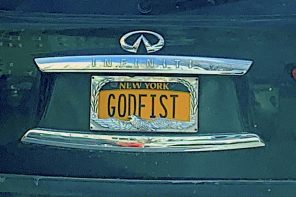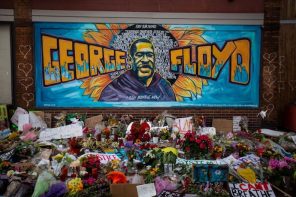The question of what it means to be that strange animal we call human has long prompted flamboyant, decorous (and, indeed, sometimes long-winded) answers. Back in the 18th century Jean-Jacques Rousseau published a little book he called Émile: or, On Education. This treatise—whose utopian propositions would go on to inspire figures in both the French and American revolutions—was not modest about its aims. Rousseau promised to do nothing less than shape the very destiny and life journey of his human reader. “To live is the trade I will teach him,” Rousseau baldly proclaimed. “On leaving my hands,” he continued, “he will be a man; and all that a man ought to be.”
For centuries, Émile has been counted among the greatest tomes of the humanist tradition; a school of thought that purports to describe human nature, not scientifically but philosophically. Contemporary readers, however (in a scientific and more gender-neutral era), are quicker to see some of its shortcomings.
David Brooks—New York Times columnist, lover of sweeping generalizations and grand moralisms—has written a new book that is, in many respects, deeply nostalgic for (and reverential toward) this old humanist tradition, though he’s updated his humanism to be more in-tune with today’s elite American values.
Neither does he accept one of the classical presumptions that many humanists borrowed from Aristotelian thought: that the human is the one animal who uses reason—the rational animal. He leaves the gates to reason open for our dogs, perhaps. But, more crucially, he’s trying to convince his readers that reason was never the best thing about being human, anyhow.
Instead, Brooks wants a more emotional and heartfelt humanism. He wants to suggest that the human is the premiere social animal—distinguished from all other species because “we have phenomenal social skills that enable us to teach, learn, sympathize, emote, and build cultures, institutions, and the complex mental scaffoldings of civilizations.”
Referring to what he calls “the unconscious” (not a Freudian sort of darkly torturous unconscious, but what seems, more or less, to be the simple mirror opposite of philosophical reason), Brooks suggests that this is the social glue that brings us human animals together and makes us distinct as a species. He wants us to see reason as a weaker faculty that nests in, nestles into, and suckles on the unconscious work of our emotions.
The non-rational unconscious, he says, is “the soul of the species,” or our “soulscape.” It is “a place where spiritual states arise and dance from soul to soul.” In the place where our brains produce emotional reactions, Brooks charges, there might be what he calls a “divine creativity” where “love rewires the neurons.” And so Brooks underscores what he calls the emotionally harmonizing “spiritual GPS” in our strange human brains.
The lines between science, spirituality, storytelling, politics, and Washington-insider social values are fuzzy in Brooks’ book. This may be one of the things that makes his analysis inspiring; though it’s also a bit confusing, perhaps even dizzying. In his New York Times review, philosopher Thomas Nagel chides Brooks for believing and endorsing any old piece of data presented by a cognitive scientist, “however idiotic.” And, so, it seems important (to me) to underscore the extent to which Brooks is echoing and imitating the destiny-shaping ambitions of old school humanists like Rousseau.
Indeed, a related article that Brooks recently penned for The New Yorker suggests that his synthesis of scientific research and freewheeling theory might end up “filling the hole left by the atrophy of theology and philosophy.” This is an interesting proposition, and it’s telling: if Brooks’ tale about who we are gets a bit mystical at points, this is no accident. There are spiritual motivations behind Brooks’ appropriation of scientific research. Like Rousseau, to live (and to be fully human) is the grand, didactic lesson with which Brooks hopes to shape and teach us.
I should say that Rousseau features prominently in this analysis because Animal takes its very form from Émile. Rousseau struggled to convey arguments about human social and political life by telling the story of the (presumably) fictional Émile (and his socially-lesser female foil, Sophie). He narrates the infancy, growth, and adolescence of Émile in order to illustrate what his theories would look like as played out in the embodied life of an actual human man.
Brooks, in his project, creates the more egalitarian fictional characters Harold and Erica—a gleaming American power couple who face distinct social challenges in order to grow and develop in a perpetual present (where, untethered from history, they are able to find Facebook friends and send text messages throughout their long lives). Brooks dresses them up and puts them, narratively, into social situations (breastfeeding, falling in love, job acquisition) in order to illustrate how their model behavior illuminates various theories in psychology, cognitive science, or sometimes philosophy.
Brooks seems to assume that we, his readers, will enviously see this model couple as living the epitome of a “happy” and fulfilling human life as they struggle to define themselves as upper-middle class individuals in a cutthroat and careerist American society, eventually becoming CEOs (of a cable company), presidential campaign organizers, or think tank operatives (who write articles that sound as if they quote, primarily, from Brooks’ Times column). But instead of inspiring figures of human potential, they come off more as cheap foils that Brooks is using to market his theories to the wealthy, literate class of policy wonks that he hopes will take his ideas seriously.
More, Brooks is no Rousseau. And no novelist. If there is something mildly, warmly inspiring about his theoretical claims, they fall flat when explored through the medium of these sadly hollow characters. Brooks is perhaps best known as a satirist who critiques absurd figures such as the “bobos” (in his 2000 Bobos in Paradise: The New Upper Class and How They Got There) in order to make a broader, socially analytical point. It seems as though Brooks wants to give Harold and Erica some spark, some spunk, some redeeming qualities. But, in the end, they seem nothing more than strange satires of Brooks himself.
Harold (the white American man who grows up in a comfortable middle-class family), is Brooksian in the obvious sense, while Erica is born into poverty, grows up in a housing project, and propels herself into high power executive positions by the sheer force of her will. But his own distance from this character (whose values and aims seem so uncannily similar to his) seems to leave Brooks a bit tongue-tied and awkward in front of her. There’s even an uncomfortable sexual tension between the two of them.
When he has her (as a young woman) get dressed up in a suit, for example, he tells us that she looks something like a “ghetto Doris Day,” exoticizing her Chinese-Chicana lineage (claiming that this “explains” her attractiveness). He talks about her hard abs. At one point he suggests that she’s a kind of salvation figure who God raised “in chaos and squalor so that she might be armed with enough knowledge, drive and vinegar in her bloodstream to jostle the White Man from the comfort of his categories and help him see the hidden forces that actually drive the mind.” Passages like this make me wish he’d just stuck to theory and stayed away from storytelling altogether.
Ultimately, it seems that Brooks himself has not really been effectively jostled from the comfort of his own categories. It doesn’t take much to convince me of the importance of emotions, of reason’s deep dependence on the passions, desires, and feelings in our animal bodies. But this is something I’ve learned from my reading in (among other things) a host of contemporary feminist theories, so I didn’t need Brooks to feed me this.
And, although I’ve suggested that Brooks is promoting a kind of “reformed” humanism, he also makes it clear in Animal that he’s really just advancing the British stream of Enlightenment humanism (advanced by thinkers like Adam Smith and Edmund Burke) which celebrated the power of sentiments and affects, rather than the French (promoted by figures like Descartes and Voltaire), which advanced the work of reason and rationality.
My critical question for Brooks might boil down to something like this: why turn to psychology and cognitive science in attempts to “prove” that increasingly hollow humanist terms such as “character” (or meritocratic values such as “achievement”) can be substantiated, or propagated, using scientistic research? Aren’t there more interesting, perhaps more novel, lessons on human life that we might cull from scientific research in various fields?
Part of this, I think, requires less of a myopic focus on imagining ourselves—as we have, for so long, in the Western philosophical tradition—as the noble specie, so grandly alienated and abstracted from all other animals. Researcher and author Temple Grandin delves into biological research on animal life in order to propose that it’s actually our social relationships with animals that turn us into more effectively humane, caring, and nurturing creatures. This seems, to me, a more productive path toward understanding our social animality—one with plenty of political, and even spiritual, implications.



